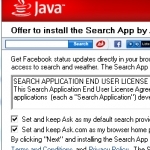Microsoft Did Not Violate Hotmail Privacy
By Richard Hay for Windows Observer
This article was originally published on March 21, 2014. Richard Hay at Windows Observer believes Microsoft was well within its rights in protecting its intellectual property.
–PC Pitstop.
This past week news broke that a former Microsoft employee of seven years, Alex Kibkalo, was arrested on charges of stealing intellectual property (IP) from Microsoft.
The IP in question was parts of Windows 8 before it was released in 2012 as well as the software development kit (SDK) that can be used to manage the Windows activation process and generate activation keys for illegal copies of the operating system.
Details of the above information can be found in the court documents for the indictment of Alex Kibkalo (PDF download).
These court documents revealed that Microsoft decided to perform a limited search of a users Hotmail account during their investigation into the IP theft Alex Kibkalo was suspected of perpetrating. This search was conducted under the Hotmail Terms of Service which allowed Microsoft to access those communications to protect the company IP.
The user, a French blogger who was known by the handle Canouna, had contacted a third party at Microsoft to validate the veracity of the leaked information he had been provided by Kibkalo. That in turn started the chain of events that assisted the internal investigation in tracking down further proof of the IP theft by Kibkalo and leaks to Canouna.
As you might imagine tech news and blog sites jumped all over this revelation yesterday, the search of the bloggers Hotmail account, and commenced pointing out this privacy violation and comparing it to Google’s own admitted scanning of millions of emails on their servers.
This excerpt appears with permission from Windows Observer.




